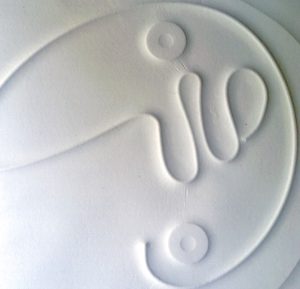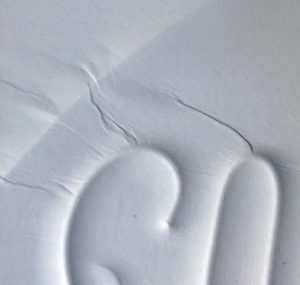Valeria Gasparrini
Artist, illustrator
About
Valeria Gasparrini ( Rome, 1964), was formed thanks to a rich contribution of artistic and literary experiences: classical studies, research in ceramics, painting, fresco, engraving, drawing from life; attended the three-year course of illustration at the IED, and was trained in the graphic engraved at the Stamperia del Tevere , in Rome. Today she works as an artist, as an advertising illustrator and freelance editorial, as a teacher of drawing, visual and illustration at Quasar Design University, the Academy of Fine Arts of L'Aquila ABAQ, the American University in Rome AUR. He draws live in theatrical performances, and realizes performances with stage machines of various nature that builds and animates on stage. As an artist he has participated in personal and collective exhibitions, and passionately dedicates himself to the creation of artist’s books, combining his remarkable illustrative nature with the infinite expressive possibilities of engraving techniques.
He has exhibited in Rome, Milan, Bologna, Faenza, Venice, Paris, Luxembourg, Rothemburg. Some of his works are part of permanent exhibitions, such as the ceramic work "Rain" at the International Museum of ceramics in Faenza, the artist book "How many irreplaceable lives", exhibited at the national library of Luxembourg, and its printed version exhibited at the Casa della Memoria in Rome.
They wrote about here
Daniele Scalise, Loris Schermi, Francesca Tuscano, Michèle Wallenborn, Devin Kovach, Sarah Linford, Gianluca Tedaldi. Valeria Bertesina. For interested people, I am writing to offer the highest recommendation for Valeria Gasparrini who has held two engraving workshops for the Rome Center of Architecture and Culture at Woodbury University which I direct. He guided the students' works, taking them from the initial drawings to the creation of the definitive prints and their possible display in an exhibition. I find her one of the most creatively contagious and inspiring people with whom I have had the opportunity to collaborate. Let me take the liberty of offering a few details regarding his remarkable abilities. To begin with, she is a very competent artist in her field. She is also generous in sharing her experience and does so with great enthusiasm. In the initial phase of the projects he offers numerous approaches, both experimental and conventional, with the aim of giving birth to works of art that can then be created on slabs. In the workshops we used zinc and copper plates, and the results were surprising. It featured field sketching exercises, complex mapping projects, and digital plate file translations. It has provided Woodbury with some of the most powerful and transformative learning experiences students have had in Rome; also in relation to what they do at home. Our students love her and she has been there for them every step of the way, teaching them techniques to achieve their creative goals. It is a magical moment when the students complete the drawings, prepare the plates, ink them working in their studio. And then they print them. This would not have been possible for us without Valeria's expertise. Thank you for the opportunity to offer a great recommendation for Valeria and I would be happy to discuss her merits further should you wish to contact me at my email: paulette.singey@gmail.c
Best regards Paulette Singley Woodbury University professor, Director of the Rome Center for Architecture and Culture
The dry printing
 Dry printing is a type of printing where the matrix (preferably a flax or woodcut matrix worked with accentuated reliefs) is printed without ink; the result is a relief print. In this case the paper must be wet and must be of good quality in order to deform without tearing. To the double felt is sometimes added a layer of foam rubber, to “wrap” better with the pressure of the roller all the reliefs. A good paper to use is the Hahnemuhle 295 gr. When the pressure is too much for the type of paper, or the paper has not been wet enough, or the applied pad is excessive, then paper tears or folds may occur.
Dry printing is a type of printing where the matrix (preferably a flax or woodcut matrix worked with accentuated reliefs) is printed without ink; the result is a relief print. In this case the paper must be wet and must be of good quality in order to deform without tearing. To the double felt is sometimes added a layer of foam rubber, to “wrap” better with the pressure of the roller all the reliefs. A good paper to use is the Hahnemuhle 295 gr. When the pressure is too much for the type of paper, or the paper has not been wet enough, or the applied pad is excessive, then paper tears or folds may occur.

The impression can be either an elevation of the design, called embossing, or a lowering of the same and in this case it is called debossing. In both cases, however, it is a printing technique that works only through a compression action, therefore without the use of color; it becomes fundamental the light to which the work is exposed, because it is with light that you highlight the graphics in relief.
